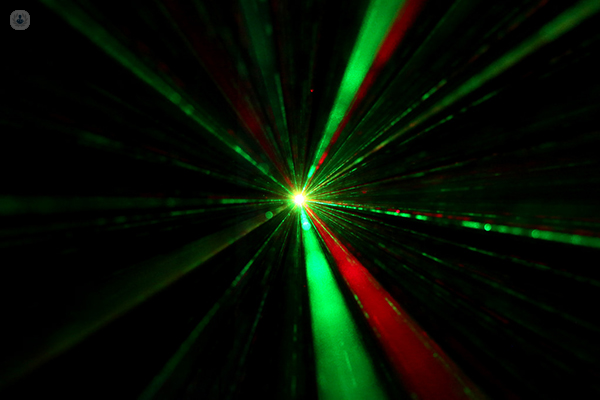


What is laser lithotripsy?
Laser lithotripsy is a surgical technique to remove kidney stones, using a laser to destroy them, with the holmium laser being perhaps the most famous device used. It is an example of minimally invasive laser technology.
It is usually performed under local anaesthesia or light sedation to eliminate the pain of the intervention.
Why is laser lithotripsy done?
Laser lithotripsy is used to fragment kidney stones that are too large to be passed out of the body in the urine. It is an alternative to extracorporeal shockwave lithotripsy, which uses sound waves from outside the body to break down the stones. However, this technique has limitations, and may be ineffective due to the size, position, or hardness of the stone. Laser lithotripsy is generally effective regardless of these factors.
What does laser lithotripsy consist of?
The urologist first locates the stone by passing a scope into the urinary tract via the urethra. A flexible laser fibre is inserted through the scope in order to deliver the laser pulse directly to the stone. The energy from this fragments the stone into pieces small enough to pass out in the urine.
Preparation for laser lithotripsy
Before laser lithotripsy, the patient should inform the doctor:
- If they are or could be pregnant
- Any medication they are taking
During the day of the procedure, the patient will probably be advised not to drink or eat anything for several hours beforehand.
Care after laser lithotripsy
The fact that an endoscopic instrument is inserted into the urinary tract can cause inflammation, which can, in turn, hinder the passage of urine from the kidney to the bladder and can cause a burning sensation when urinating. This feeling should go away within a day or so. There may also be slight bleeding in the urine in some cases, which should not last for more than 5 days.
Sometimes, the doctor may place a small tube called a stent inside the ureter (one of the tubes that connects the kidney to the bladder) to hold it open while the stone fragments pass through.
Antibiotics may be prescribed to prevent an infection. Always follow the doctor’s instructions as to what medication should be taken following an operation.
